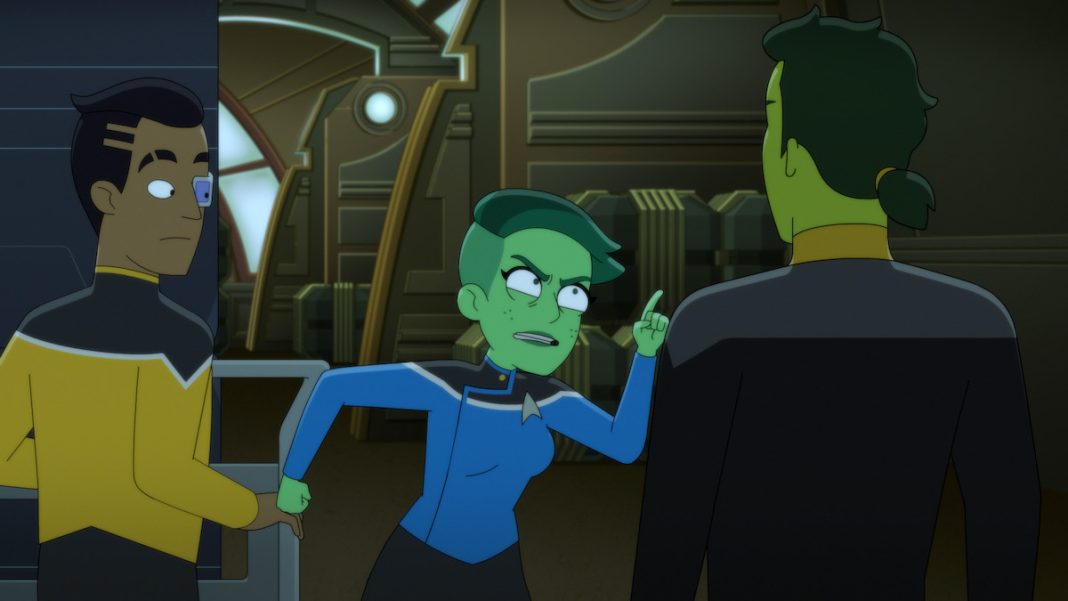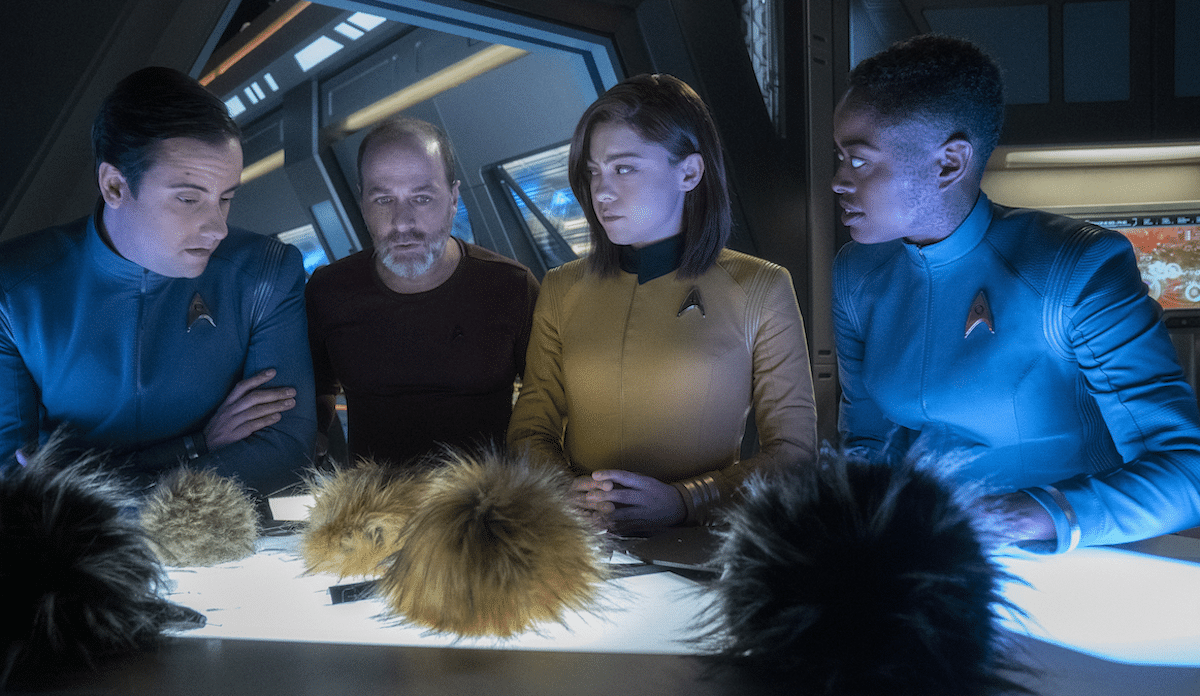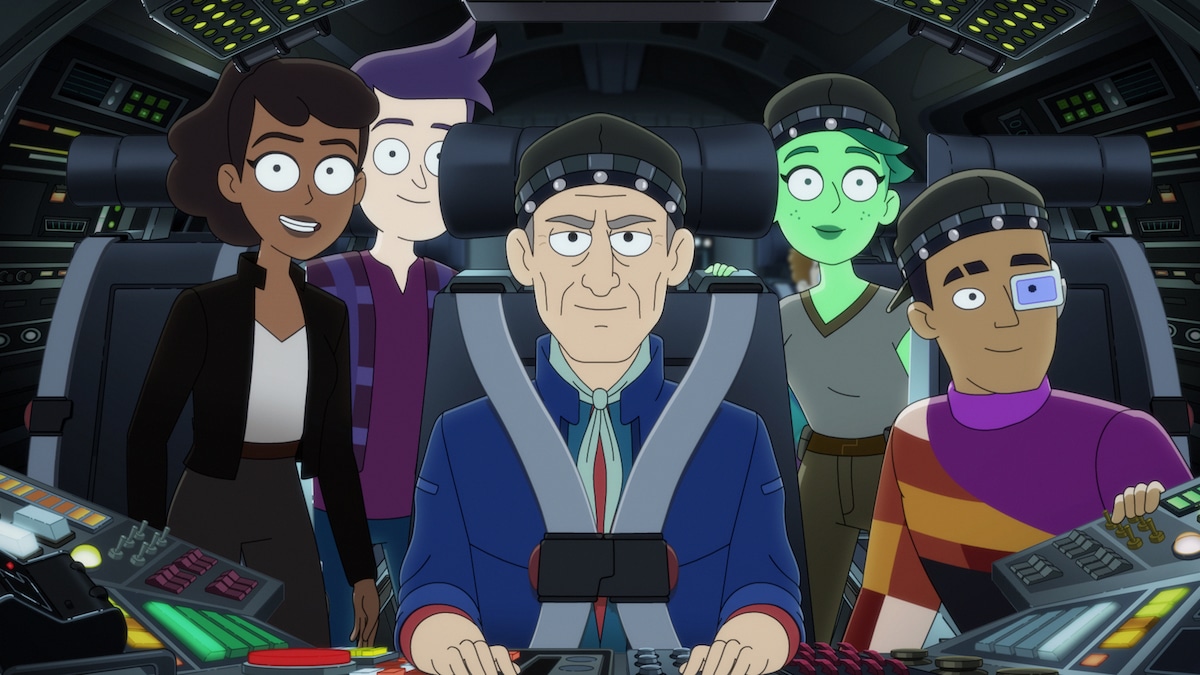This review contains spoilers for all 3 seasons of Star Trek: Lower Decks, up to and including the third season finale, “The Stars at Night,” released for streaming on Paramount+ today, Thursday, October 27th, 2022.
From the start, Star Trek: Lower Decks has been about giving the “essential workers” of Starfleet the spotlight they’ve always deserved. But while the earlier episodes of the Damage Control-style series focuses on the ensigns of the USS Cerritos beta shift, even to the exclusion of the ship’s command crew, the sophomore and third seasons have expanded the show’s aperture to include not just Captain Carol Freeman (the impeccable Dawnn Lewis) and her team, but the California class as a whole.
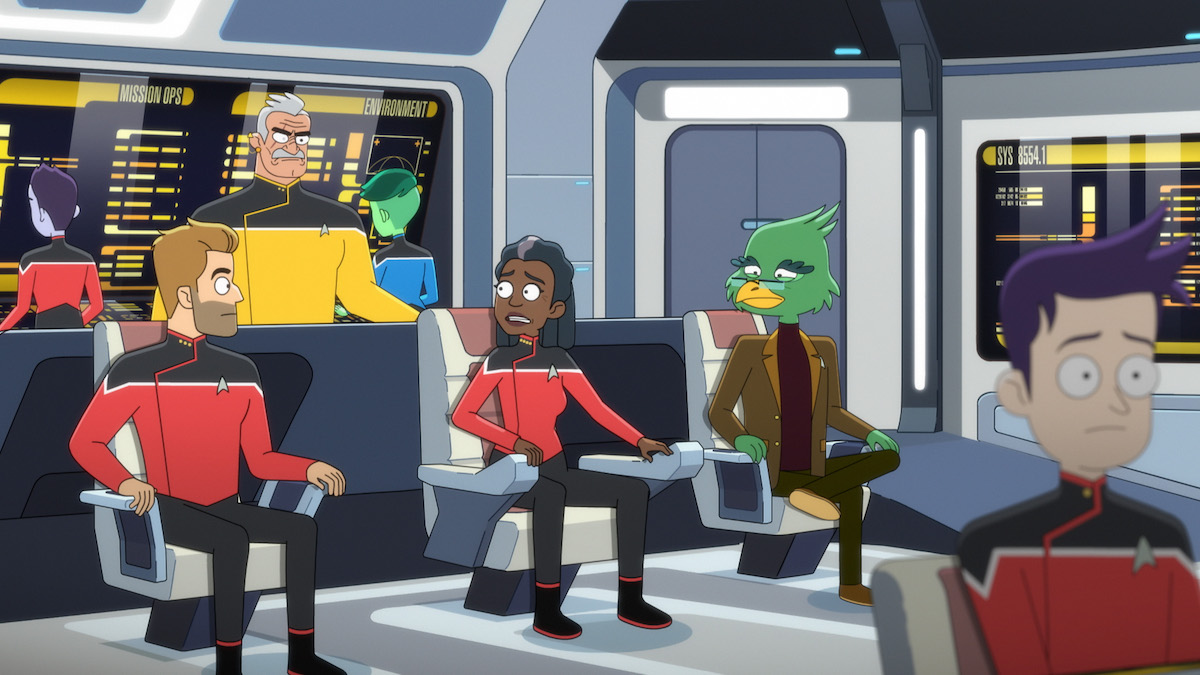
Lower Decks foils
However, while the show’s overall aperture may have expanded, there is still plenty of narrative time for the beta shifters. In particular, this season emphasizes the show’s use of character foils, perhaps most prominently through Ensign Beckett Mariner (Tawny Newsome). In addition to Mariner’s primary character foil, Ensign Bradward Boimler (Jack Quaid), this season also emphasizes how her mother, Captain Freeman, plays the role of a foil for her as well.
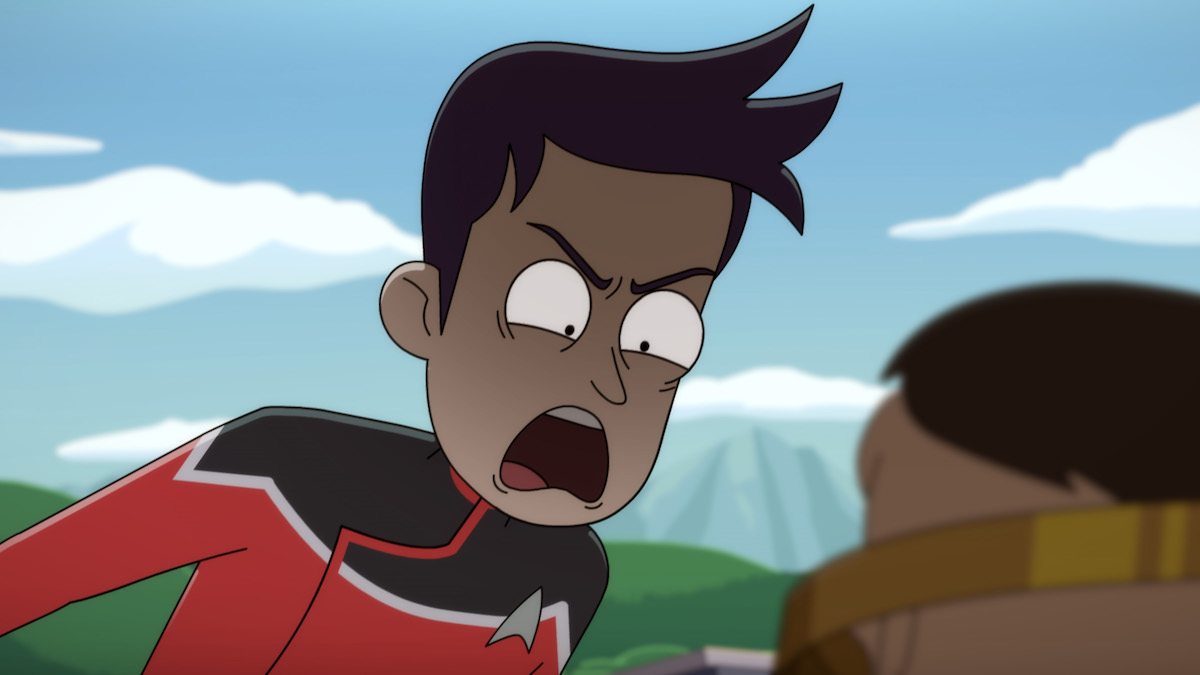
Bradward as a foil for Beckett might be the most obvious. In the season 1 finale, “No Small Parts,” Boimler left the Cerritos after accepting a promotion to the Titan, captained by Trek legend William T. Riker (Jonathan Frakes). This is what Boimler thinks he wants – while the Cerritos may be a faceless Starfleet workhorse, the Titan is A-list all the way. While Bradward is off the Cerritos, Ensign D’Vana Tendi assumes he is having the time of his life (although we see that he seems to be in a little over his head). After being transporter cloned in season 2 episode 2, “Kayshon, His Eyes Open,” the original Boimler semi-voluntarily returned to the Cerritos.
Mariner’s extra-Cerritos journey is a textbook inversion. After she’s booted off the Cerritos over a misunderstanding in season 3 episode 9, “Trusted Sources,” she accepts a position with the Independent Archeologists Guide (oh, the INDIE Archeologists Guild… now I get it). This is what Mariner thinks she wants, because she’s free of the formalistic and material restraints of Starfleet regulation and authority. While Beckett is away from the Cerritos, Tendi assumes she is miserable without Starfleet (although we see that she seems to be having an exciting if unfulfilling experience). When she learns the Cerritos needs her help – and that she won’t get an easy out from her commitments to the Guild – Mariner nevertheless elects to return to the Cerritos and hope they accept her back.
However, in addition to Boimler serving as Mariner’s character foil, Captain Freeman also serves as a character foil for Beckett this season. In season 3 episode 1, “Grounded,” Freeman stands accused of detonating a bomb on Pakled Planet. While the FNN News reports look grim, Mariner never loses faith in her mother. In addition to serving as an outspoken supporter, telling anyone who will listen that her mother is innocent, Beckett even attempts to undertake an extra-legal mission to locate evidence that will exonerate Freeman. All this is for naught, however, because the utopian nature of Starfleet means its legal system comes to the correct conclusion – even if the events that transpire to make that happen are a little too “upper decks” to be directly depicted on the show.
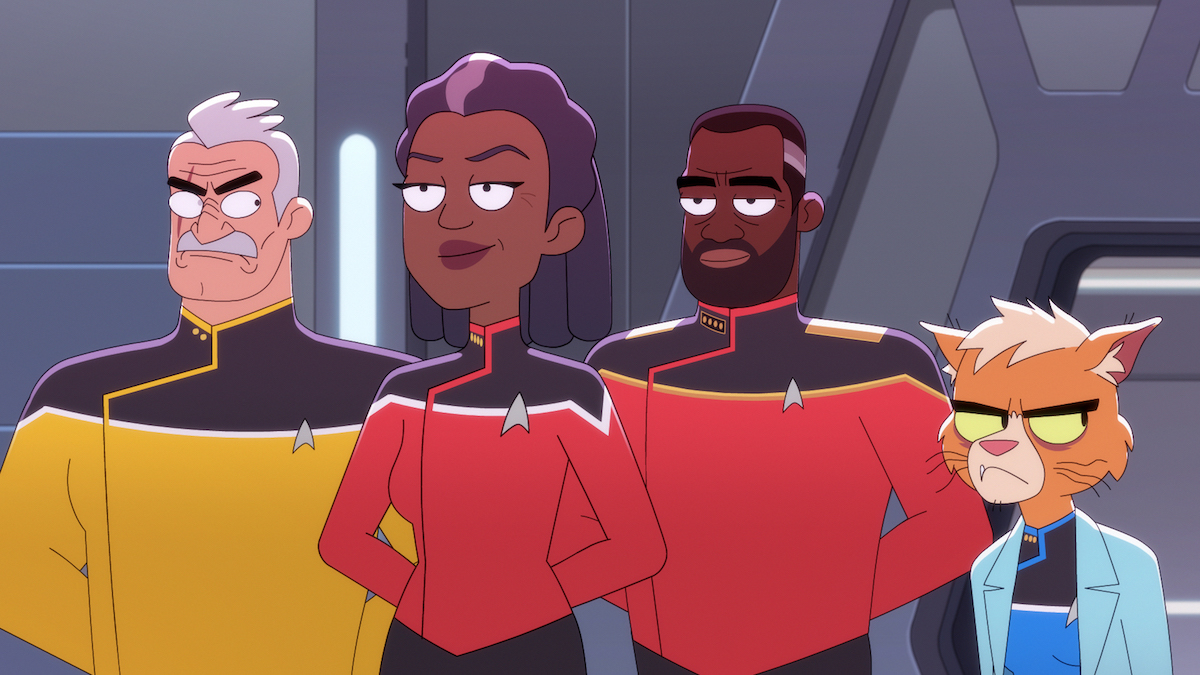
By contrast, everyone aboard the Cerritos was quick to assume Mariner’s guilt, even though the subsequent FNN report revealed she was the “sole voice of California class exceptionalism.” And unlike Freeman, Beckett was kicked out of Starfleet, in large part because Freeman didn’t have faith in her.
However, when Mariner returns to the Cerritos in the final moments of the season, she doesn’t hold a grudge for the mistreatment, acknowledging her role in convincing everyone that she was capable of that kind of betrayal in the first place. Furthermore, after being chagrined at being assigned to Commander Jack Ransom (Jerry O’Connell) back in the season opener, the situation is inverted when Beckett requests him as her mentor in the season finale.
Crisis Point 2: Paradoxus
While there wasn’t a dud in the batch, one Lower Decks season 3 episode embodies the deft manner in which the show approaches metafiction in a meaningful way. In “Crisis Point 2: Paradoxus,” beta shift is taking part in a sequel to season 1’s “Crisis Point: The Rise of Vindicta.”
However, when Boimler is affected by a personal tragedy, he and Mariner veer off the A-plot in an extended parody of Star Trek V: The Final Frontier. This allows for specific parody of both the text of Star Trek V and the associated behind-the-scenes drama, as the shifting authorial perspectives lead Bradward and Beckett to bicker over who is making the “real” Starfleet movie, echoing the drama that transpired when Leonard Nimoy passed directorial duties off to William Shatner between movies 4 and 5.
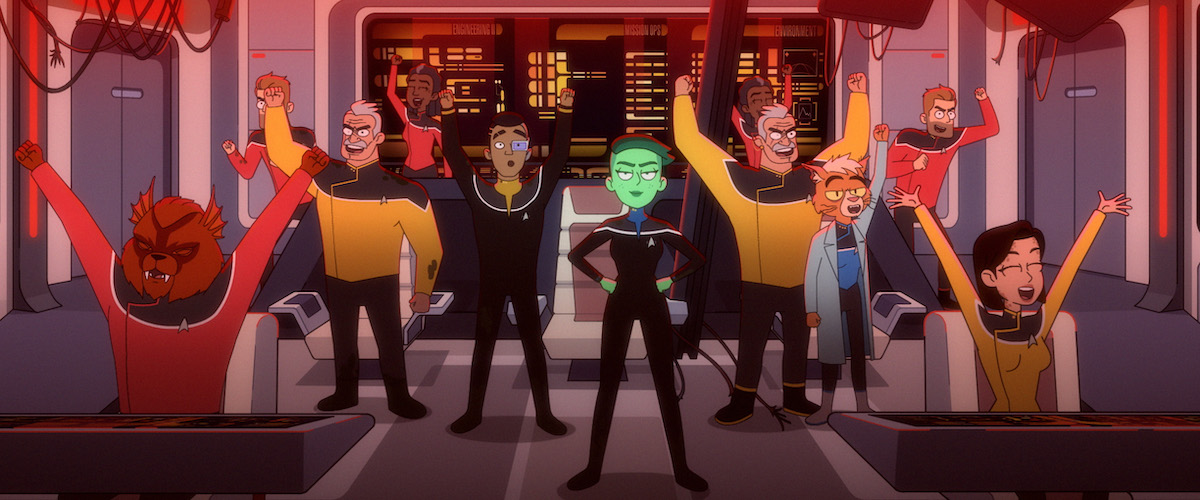
But with Mariner and Boimler predisposed with their search for Kityha, the actual A-plot of “Paradoxus” is left to Ensign D’Vana Tendi (Noël Wells). This leads to an argument in favor of representation. Thanks to the fact that she gets to see herself in the role of Acting Captain Meena Vesper, Tendi is able to realize that she actually wants to be a Starfleet captain herself. But since Orions like her aren’t ever considered worthy of those roles, she’s never before been able to articulate that desire.
This serves as a demonstration of the power Trek has on a personal level. But because Lower Decks is never content to work on just one level, the response that Ensign Samanthan Rutherford (Eugene Cordero) has to “Paradoxus” is meaningful as well. At first, Rutherford doesn’t take the movie seriously, making jokes and leaving for snacks.
This causes conflict between Rutherford and Tendi, like the kind that can arise among Trekkies when one individual is taking the Franchise more seriously than another. Ultimately, the conflict is resolved when Samanthan realizes how important the representation in the story is for D’Vana. However, the subplot demonstrates how carefully the show dances around the fourth wall without breaking it.
Cali class unification
The third season finale of Lower Decks makes a strong case for taking the show seriously. At the climax “The Stars at Night,” dozens of ships from the California class must unify in order to take down a single Texas class antagonist: the fully automated USS Aledo. Only through unification is the Cali class able to successfully outmaneuver the automated Aledo.
This means that other previously mentioned or seen Cali class ships like the Merced (season 1, episode 4; “Moist Vessel”), the Oakland (season 1, episode 7; “Much Ado About Boimler”), and the Carlsbad (season 3, episode 3; “Mining the Mind’s Mines) are all present at the conflict. In addition to these familiar ships, many additional Cali class ships make their debut during this sequence. Each of them is based off the same unmodified ship design, differentiated by colored paint: we can infer that the Cali class “isn’t important enough” for each ship to have its own unique design.
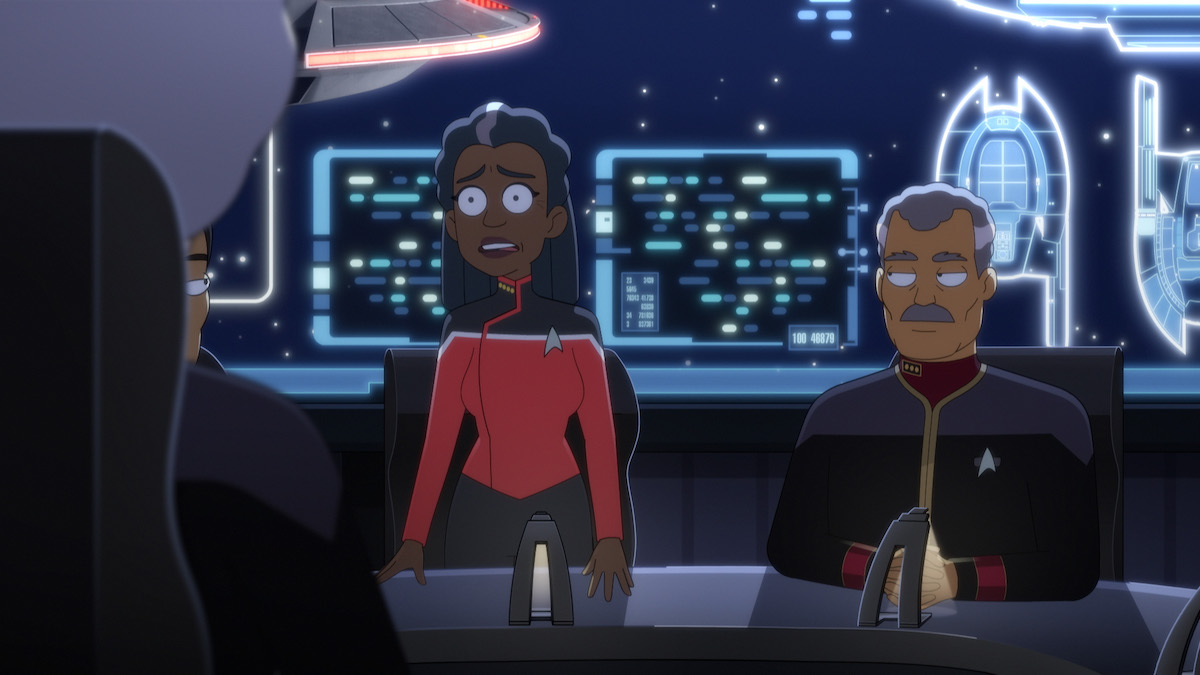
On the other side of the conflict is Admiral Les Buenamigo (Carlos Alazraqui). While Alazraqui’s prolific voice over career includes many protagonists (like the eponymous character from Rocko’s Modern Life, to name one of many examples), Buenamgio is an unrepentant antagonist who calls to mind one of Alazraqui’s most deplorable previous roles: Officer James Garcia of Reno 911!
A selfish authority figure with sociopathic tendencies, Buenamigo poses as a friend to Freeman (and earlier, Rutherford), only to toss his “lessers” aside when it’s politically expedient for him. At the climax of the season, Buenamigo openly admits that he isn’t motivated by “boldly going,” or advancing humanity’s goals in any way – he simply wants to ensure he can personally differentiate himself from the other Starfleet Admirals so he can continue to get ahead.
This twist reveals that Buenamigo possesses two elements that characterize most Lower Decks antagonists: selfishness, as embodied by Ensign Fletcher (Tim Robinson), Kynk (Tom Kenny), and the Pakleds; and a connection to automation, as embodied through Badgey (Jack McBrayer), Agimus (Jeffrey Combs), and Peanut Hamper (Kether Donohue).
Unification versus selfishness. It’s a simple theme, and some will be quick to dismiss it, but look around: just two years shy of the scheduled 2024 Bell Riots, it’s a concept humanity still hasn’t interpolated. And if we can’t figure it out, it seems more and more likely that the mid-21st century nuclear holocaust predicted by Trek lore will become unavoidable.
Lower Decks makes it clear that resolving conflicts constructively is the best choice – as when the away team from the Carlsbad and the away team from the Cerritos are forced to put aside their superficial differences and work together in the third episode of the season, “Mining the Mind’s Mines.” But while these connections can be fulfilling in and of themselves, they become necessary when faced with an individual like Buenamigo, whose actions go much further than superficial misunderstanding and well into intentional harm.
Lower Decks Season 3
In the Lower Decks season 2 episode “wej Duj,” Boimler states, “But trust me, the real action begins on the lower decks.” Throughout its run (but in season 3 in particular), Lower Decks demonstrates the validity of this axiom over and over. Furthermore, the effect of the points raised by the show is being seen in Star Trek: Prodigy (where certain characters even wear next generation versions of the Lower Decks uniforms) and Star Trek: Strange New Worlds.
Lower Decks may be an animated comedy, but it’s serious Star Trek, in content and in theme. Long live Lower Decks.
The first three seasons of Star Trek: Lower Decks are currently available for streaming on Paramount+.


